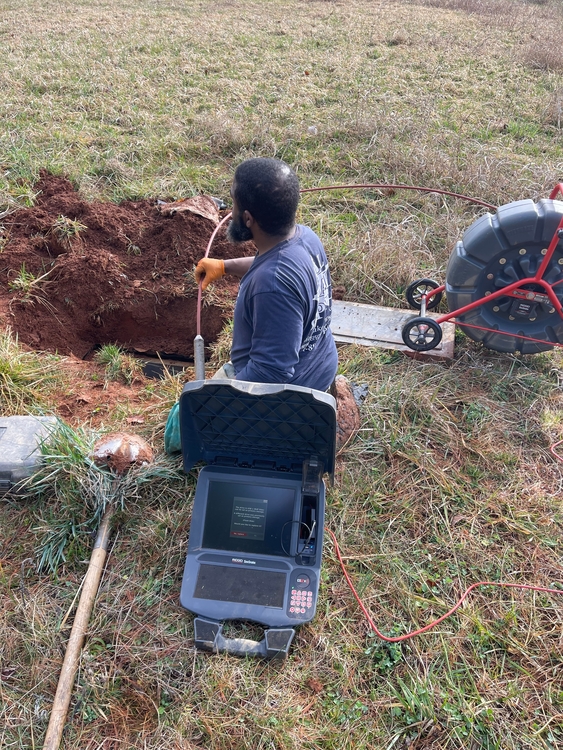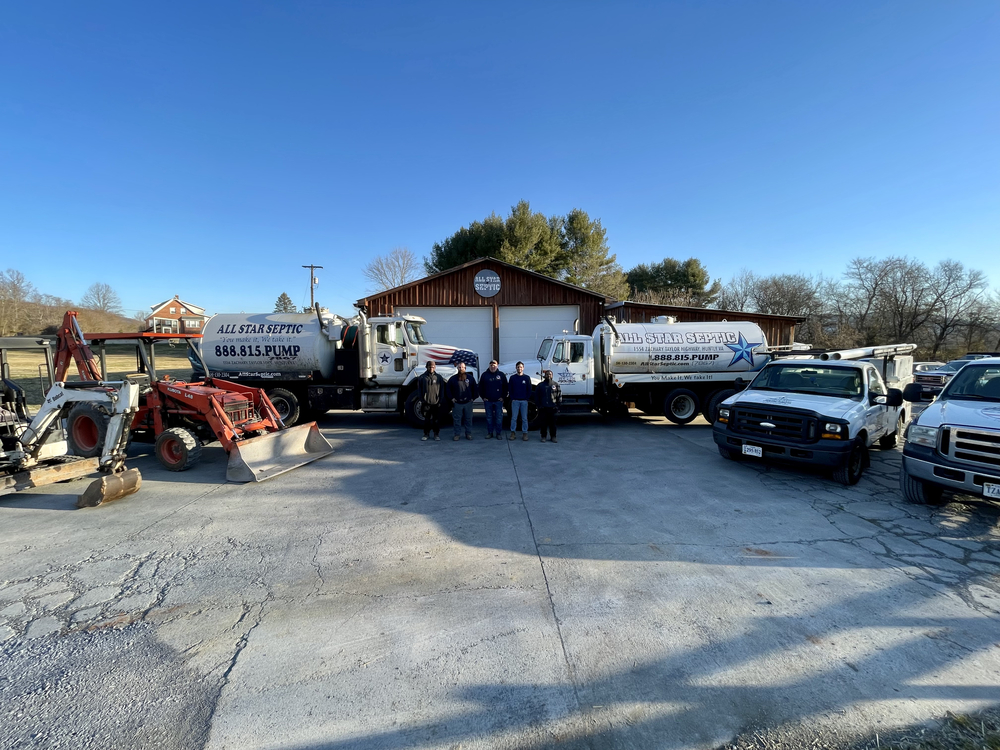If you’re a homeowner in Leesburg, VA, scheduling a septic system inspection near me is crucial for maintaining your property’s health and value.
A thorough septic inspection can identify potential issues before they escalate into costly repairs or replacements.
In this article, we’ll guide you through what to expect during a septic system inspection in Leesburg, including the process, costs, and common findings.
Overview of Septic System Inspections
A septic system inspection is a comprehensive evaluation of your property’s wastewater treatment system.

The primary goal is to assess the condition and functionality of the septic tank, drain field, and related components.
| Component | Function | Inspection Focus |
|---|---|---|
| Septic Tank | Collects and treats wastewater | Structural integrity, level |
| Drain Field | Filters and disperses treated water | Saturation, distribution |
| Distribution Box | Evenly divides water to drain field | Condition, leveling |
Regular inspections are essential for:
- Preventing system failures
- Protecting the environment
- Maintaining property value
- Complying with local regulations
The Inspection Process in Leesburg, VA
When you schedule a septic system inspection in Leesburg, a certified professional will visit your property to assess the system’s condition.
The inspector will follow these steps:
- Locate and uncover the septic tank and distribution box
- Check the water level and sludge depth in the tank
- Inspect the tank’s structural integrity and components
- Assess the condition of the drain field and distribution box
- Run water through the system to observe its functionality
- Provide a detailed report of findings and recommendations
Common Inspection Procedures and Assessments
During a septic system inspection, the professional will evaluate various aspects of your system.
Some of the common procedures and assessments include:
| Procedure | Assessment |
|---|---|
| Tank Pumping | Removes sludge and scum to examine tank’s condition |
| Water Level Check | Identifies leaks or drainage issues |
| Component Evaluation | Assesses the condition of baffles, filters, and pipes |
| Drain Field Inspection | Checks for signs of saturation or uneven wastewater distribution |
| Dye Testing | Detects leaks and confirms proper wastewater treatment |
These procedures help identify any existing or potential issues that may impact your septic system’s performance.
Understanding Septic System Inspection Costs in Leesburg
The cost of a septic system inspection in Leesburg can vary depending on several factors.
On average, homeowners can expect to pay between $300 and $600 for a comprehensive inspection.
Factors that influence the cost include:
- System size and complexity
- Tank pumping requirements
- Accessibility of the tank and components
- Additional services, such as dye testing or camera inspections
To save money on your septic system inspection, consider:
- Scheduling regular inspections to catch issues early
- Combining inspection with routine tank pumping
- Comparing prices from multiple certified providers
- Maintaining your system to prevent costly repairs
Preparing for Your Septic System Inspection
To ensure a smooth and efficient inspection, follow these steps to prepare your property:
- Locate and clear access to the septic tank and distribution box
- Gather records of previous inspections, pumping, and repairs
- Inform the inspector of any known issues or concerns
- Ensure all household plumbing is in working order
- Avoid using the system heavily before the inspection
By properly preparing for your septic system inspection, you can help the process go smoothly and obtain the most accurate assessment of your system’s condition.
Common Issues Identified During Inspections
During a septic system inspection in Leesburg, the professional may uncover various issues that require attention.
Some of the most common problems include:
- Cracks or damage to the septic tank
- Leaks in the tank or pipes
- Clogs or blockages in the system
- Drain field saturation or failure
- Malfunctioning components, such as baffles or filters
If any issues are identified, the inspector will provide recommendations for repairs or replacements to restore your system’s functionality and prevent further damage.
The Importance of Regular Septic System Inspections
Scheduling regular septic system inspections is crucial for maintaining the health and longevity of your system.
Experts recommend having your system inspected every 1-3 years, depending on factors such as:
- Household size and wastewater output
- System age and condition
- Local environmental conditions
- Previous inspection and maintenance history
| Inspection Frequency | System Condition |
|---|---|
| 1 Year | High-risk or older systems |
| 2 Years | Average-sized households |
| 3 Years | Low-risk or newer systems |
Regular inspections offer numerous benefits, including:
- Early detection and prevention of major issues
- Prolonging the lifespan of your septic system
- Minimizing the risk of costly repairs or replacements
- Protecting the environment and public health
By investing in routine septic system inspections, Leesburg homeowners can save money, avoid disruptions, and ensure the proper functioning of their wastewater treatment systems.

Why We Think This Is Important
At Allstar Septic, we understand the critical role that septic system inspections play in maintaining the health, safety, and value of your Leesburg property.
As a family-owned and operated business with over 20 years of experience, we are committed to providing honest, reliable, and affordable septic services to our community.
Our team of certified professionals uses state-of-the-art equipment, including high-definition sewer cameras, to conduct thorough and accurate inspections.
We take pride in our transparency and always welcome our customers to be present during the inspection process.
By choosing Allstar Septic for your septic system inspection needs, you can have peace of mind knowing that your property is in the hands of experienced, trustworthy professionals.
Our goal is to help you avoid costly repairs, protect the environment, and ensure the longevity of your septic system.
FAQs
What should I expect during a septic system inspection in Leesburg, VA?
During a septic system inspection, a certified professional will assess your septic tank, drain field, and related components for proper function and any signs of damage or wear. The process typically involves locating and uncovering the system components, checking water levels and sludge depth, and running water through the system to observe its performance.
How much does a septic system inspection cost in Leesburg, VA?
The cost of a septic system inspection in Leesburg varies based on factors such as system size, complexity, and accessibility. On average, homeowners can expect to pay between $300 and $600 for a comprehensive inspection. Additional services, such as tank pumping or dye testing, may increase the overall cost.
How do I prepare my property for a septic system inspection?
To prepare for a septic system inspection, locate and clear access to your septic tank and distribution box. Gather any records of previous inspections, pumping, or repairs to share with the inspector. Inform the inspector of any known issues or concerns, and ensure all household plumbing is functioning properly. Minimize heavy use of the system before the inspection to ensure accurate results.
What are common issues found during septic system inspections in Leesburg?
Common issues discovered during septic system inspections include cracks or damage to the tank, leaks in the tank or pipes, clogs or blockages, drain field saturation or failure, and malfunctioning components such as baffles or filters. An experienced inspector will identify these issues and provide recommendations for repair or replacement to maintain your system’s performance.
How often should I schedule a septic system inspection in Leesburg, VA?
The recommended frequency for septic system inspections in Leesburg depends on factors such as household size, system age and condition, and local environmental factors. Generally, experts suggest having your system inspected every 1-3 years. High-risk or older systems may require annual inspections, while newer or low-risk systems can be inspected every three years. Regular inspections help prevent major issues and prolong the lifespan of your septic system.


